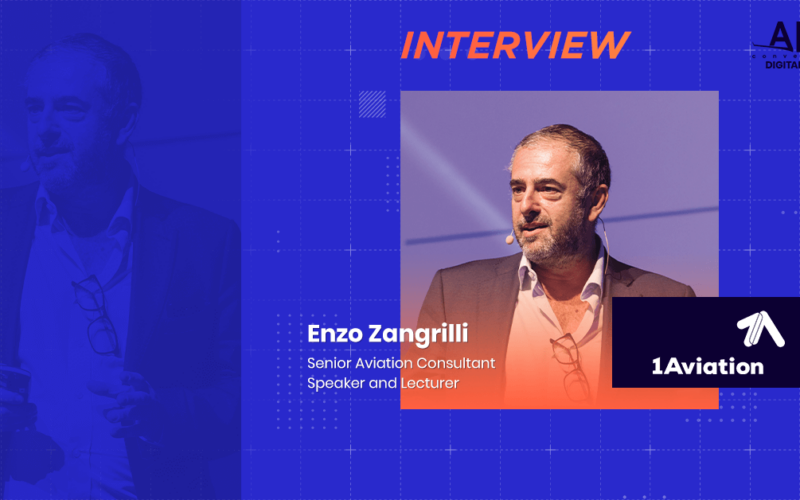AIR Convention Digital Week is only two weeks away. Before the conference goes live on June 15th, AIR Convention team asked the speakers to share their opinions about the challenges brought to the aviation industry by the coronavirus crisis.
Enzo Zangrilli is the owner of 1Aviation Consulting Services. He has held senior positions in European and worldwide companies, airlines and airports for 20 years. In this interview, Enzo Zangrilli talked about the pandemic effects on the European market and shared his outlook for the future of air travel.
How do you see the future of air travel changed by the effects of the pandemic crisis?
COVID-19 has been a cataclysmic event for aviation. This may sound a bit of a strong parallel, but we have witnessed pretty much what dinosaurs must have seen before extinction. Nobody expected it, and nobody was ready for it. The future, as per the dinosaurs’ parallel, will reward those able to adapt and evolve.
Few airlines will remain, also thanks to the state aids raining on the major national flag carriers. Many airports will close or work on a reduced scale, assuming new configurations (multimodal hubs working with rail and road actors, small regional airports which will serve as access portals to regional tourism interests and so on). And many people will have to reconvert to different industries, I am afraid.
What about the European market? Does it have any patterns that make it different? What changes shall we expect in a few years?
The European market has been hit harder than other markets. Even before the crisis, it was already a very saturated market with too many airlines and airports competing with each other in small catchment areas. We need to be ready to travel more to get to the airports of choice and to spend a bit more to fly, both in point to point and intercontinental level.
In your opinion, is removing middle seats on the planes to improve safety a good call or a redundant solution?
First of all, it doesn’t guarantee a minimum of two meters required to ensure that the virus doesn’t travel from passenger A to B through saliva and sneeze droplets. Secondly, it will definitely kill at birth any hope to jump-start aviation and completely twist the airline booking model, particularly the LCC’s, based on high load factors.
What kind of solutions will be necessary to maintain high levels of safety for passengers and staff at the airports?
Not many or at least not revolutionary ones, in my opinion. Encouraging online check-in and limiting airport check-in will already reduce the possibility of people getting close to each other before the flight.
Security screening integrated with thermal scanners at airports, slower boarding processes without pre-boarding secluded areas will, unfortunately, be necessary, with the result of slower turn around and fewer aircraft rotations per day and per year. All this will trigger traffic volumes drop, but at least guarantee some form of resuscitation of the industry.
What will it take for the industry to recover?
First, economies at the state and continental level need to start again. Aviation will count on people’s demand for travel, which today is extremely damaged.
The quicker the economy recovers, the quicker airlines and airports will start operating again in a sensible manner. And then, what we will all need as industry operators, is resilience, sacrifice, and passion for our jobs.
Enzo Zangrilli is going to join the discussion “Impact of COVID-19 on European Aviation” on June 19th, 2020. Register in advance to join for free.

